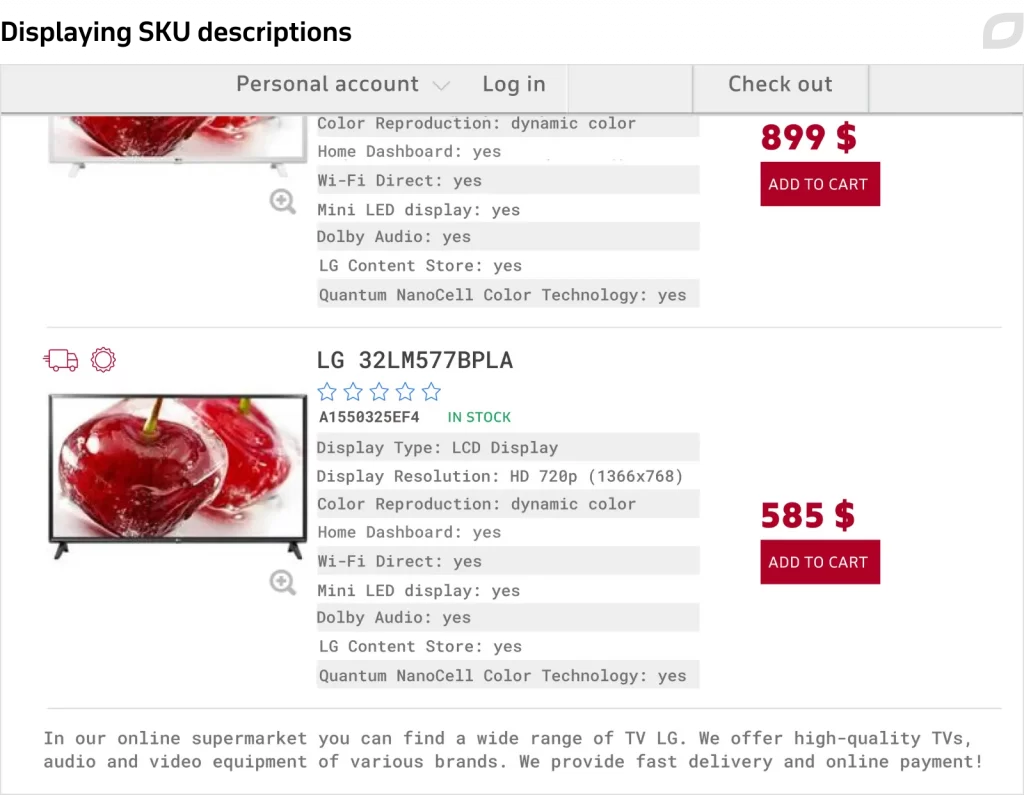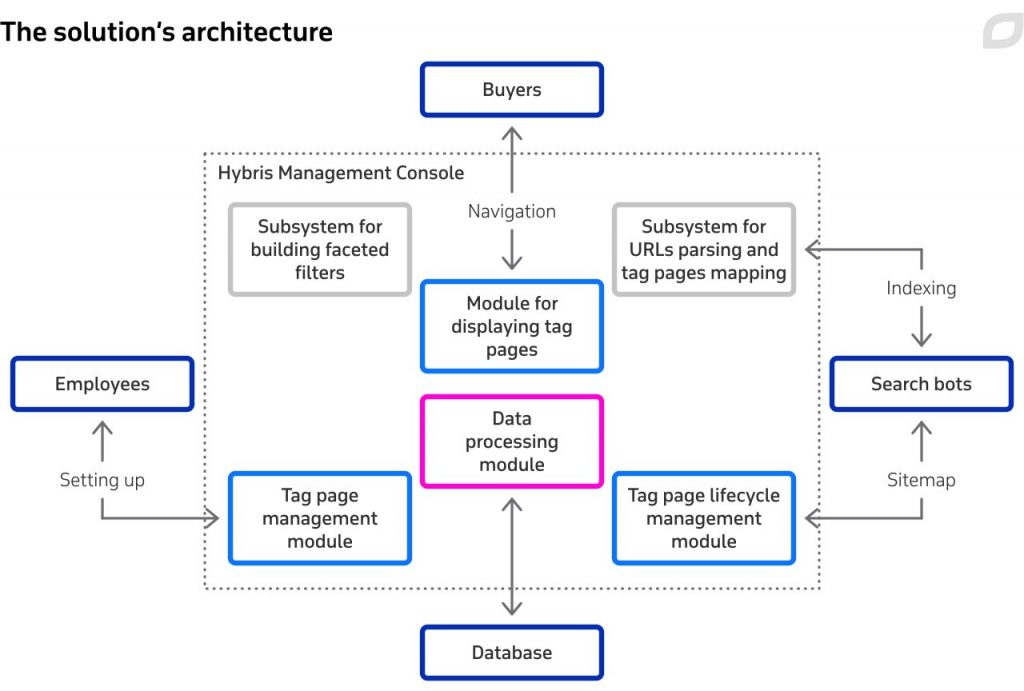Online Supermarket Optimization
Project Info
- Created By M. R. Tanvir H.
- Client Supermarket
- Date 15/9/2019
- Category Software Product
Project Description
My team optimized catalog pages of an SAP Commerce-based online supermarket, helping to increase its low-frequency search queries traffic by 60%.

Context
Our customer is a supplier of audio-visual equipment with several large online stores and a client base of thousands of companies. Their online supermarket is built on SAP Commerce (formerly SAP Hybris), which allows for effective product catalog and content management, faceted navigation, marketing campaign tracking, etc.
The customer wanted to increase their online store traffic and boost visibility in search engines using low-frequency queries. My Team has extensive expertise in SAP Commerce and relevant projects in our portfolio, which convinced the customer to entrust us with the optimization of their online supermarket.
Solution
Improvement of facet navigation in catalog pages
To enable quick product search, the online store has a faceted navigation system, which generates the address of the catalog page and product list based on the set facet value. Before the customer turned to us, catalog page addresses were unstructured dynamic URLs with multiple GET parameters arranged in a different order. This way, the system generated a large number of pages with unoptimized and non-human-readable URLs, which made it difficult to promote the online store.

To solve this problem, we redesigned the faceted navigation mechanism and the URL generation method for catalog pages.
Our team also improved the storefront module by implementing the URL building and parsing mechanism together with the rules for facet filters generation. Additionally, we equipped the commerce services module with data handlers to ensure the correct functioning of facet navigation.
After our modifications, catalog page addresses are generated based on the facet filters values (for example, brand, color, format, etc.) and are shorter and more structured.

When generating the URL of a tag page, the system transforms special characters into standard symbols. The order of facets in the URL address is also strictly regulated, and if it is disrupted, the system automatically redirects the user to the page with the correct URL. This helps avoid duplicates and allows the search bot to display tag pages in a single view.
As a result, having a single-valued static URL assigned to each catalog page also helped improve the visibility of catalog pages for search bots.
Automation of tag pages management
Next, to provide the online supermarket administrators with familiar tools for managing tag pages, we improved and expanded the functionality of the customer’s Hybris Management Console instance.
For example, our team developed a feature that changes a tag page status from non-indexed to indexed. To automate tracking of tag page statuses, we created a group of cron jobs to automatically check tag pages for compliance with preset rules and parameters.
The cron jobs can change the tag page statuses based on the following criteria:
- The current number of products on the page. If the number of products is less than the specified value, the page becomes non-indexed.
- The number of products on the page within the specified period. Since the number of products may change over time, SEO specialists can set two parameters for changing tag page status. If the number of products is less than the set value (for example, 5 products) within the set time (for example, 10 days), the page becomes non-indexed.
We also added new menu items to the Hybris Management Console, such as Tag pages, Rules for creating indexed tag pages, Attribute values, etc., together with interactive management forms. These tools are aimed at helping the customer’s SEO specialists set up rules for creating tag pages, with attribute values completed automatically.
Beyond that, our team created the functionality for uploading reports, converting data from reports into CSV files, and editing all reports data together. This feature also simplifies the process of page tag management for SEO specialists.
Metadata templates creation
Since the online supermarket’s catalog contains a large number of SKUs, creating unique metadata texts for each product or group of products would be labor-intensive.
To help the customer overcome this challenge, our team developed functionality for generating unique relevant H1, title, description, and keywords meta tags based on preset templates. The feature also updates relevant metadata automatically when attributes are changed in the backend systems. Templates can be applied to individual tag pages as well as tag pages grouped by specific attributes en masse.


We also implemented a special markup language that allows administrators to generate textual substitutions, including the name of the category or the facet value, depending on certain page properties.
Technologies
To implement the functionality required for optimization, our team expanded the customer’s SAP Commerce instance with several new modules:
- Tag page display module
- Tag page management module
- Tag page lifecycle management module
- Data processing module

The system functionality is configured in line with SAP best practices. Currently, our solution applies to the online supermarket’s catalog and can be easily scaled on other site sections, such as Discounts, News, Collections, etc.
Results
Due to My Team’s efforts in online supermarket optimization, particularly the implementation of a tag pages management feature, the customer managed to achieve the following results:
- 60% increase in low-frequency search traffic
- 25% increase in conversions for low-frequency search queries

